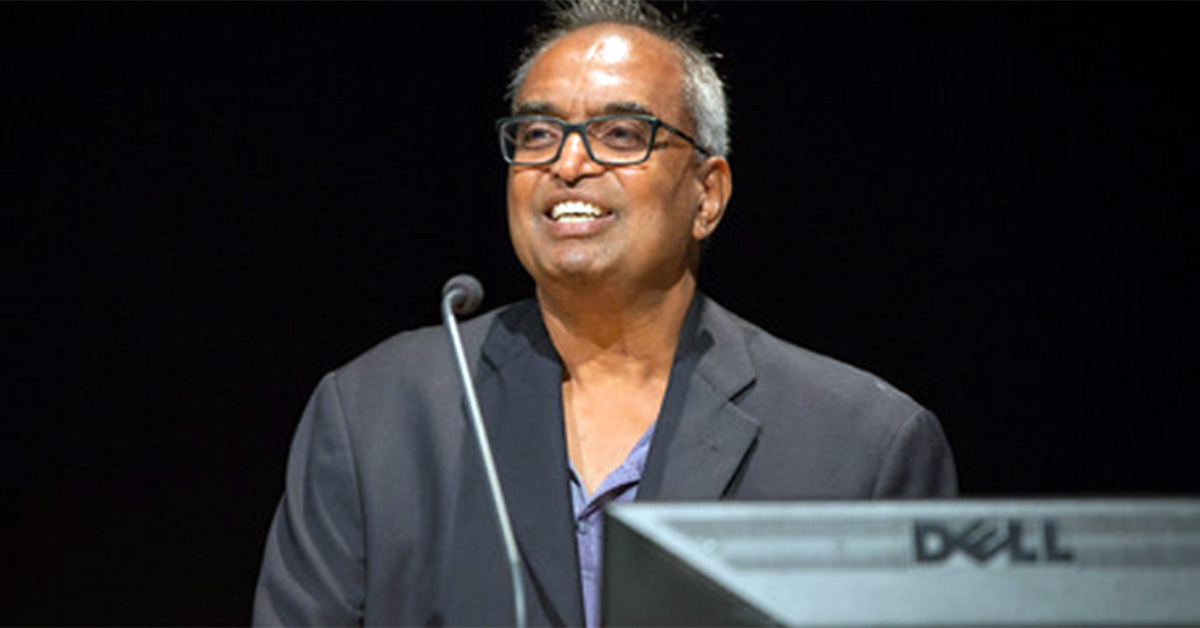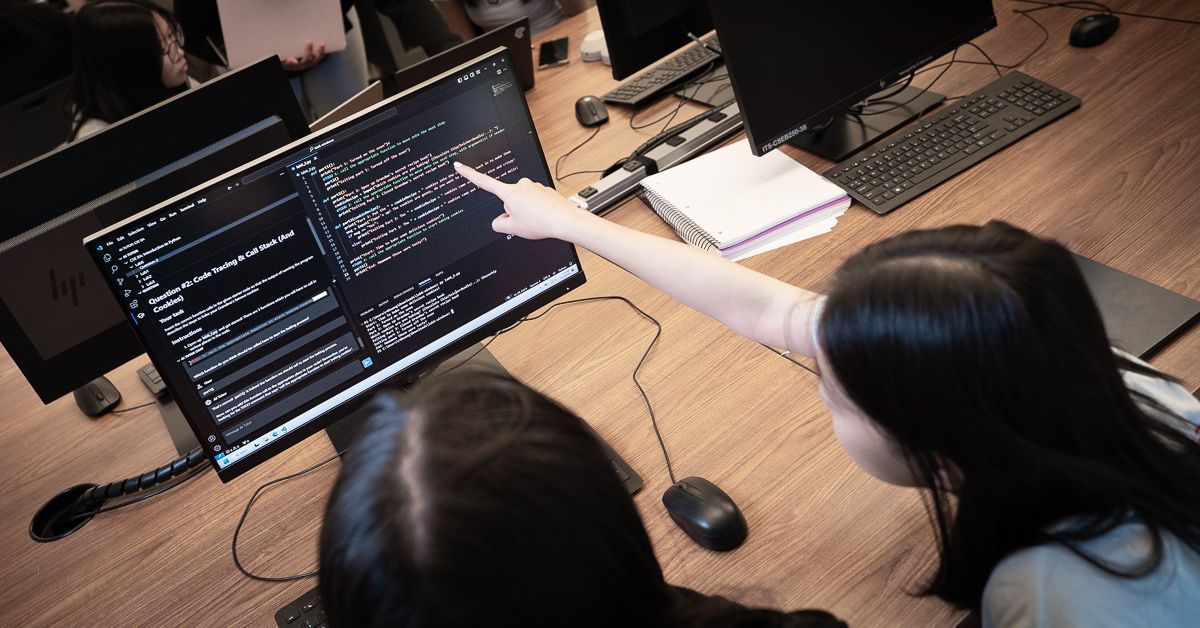San Diego Researchers to Study and Improve New AI Learning Tool
An innovative AI tutor system was created at UC San Diego, where it’s now in a pilot stage. New funding from the State of California will expand the study of this unique tool through precision deployment to universities and community colleges across San Diego County.
Story by:
Published Date
Article Content
AI-driven chatbots like ChatGPT are transforming how students do their homework, study for tests and complete classroom exercises. But these off-the-shelf tools don’t have access to course materials or knowledge of the instructor’s teaching goals. They also often give away answers to assignments instead of guiding students to the answer. A team of researchers across San Diego County received a $1.5 million grant from the State of California to offer a better alternative to these chatbots. The team will deploy, assess and improve an innovative AI tutor system that originated at the University of California San Diego.
Specifically, the grant will allow researchers to reach three goals:
- Deploy the AI tutor in eight foundational courses at higher education institutions in San Diego County
- Assess how well the tutor is helping students learn
- Develop AI literacy courses and workshops for faculty at several institutions
Thanks to the grant, thousands of students and dozens of faculty will have access to the AI tutor tools alongside traditional support from teaching assistants and student tutors.
The team funded by the grant includes AI engineers, computer scientists, cognitive psychologists, biologists and additional educators.
The grant, which is part of California’s AI Grand Challenge: Leveraging AI for Teaching and Learning program, brings together UC San Diego, San Diego State University, Palomar College, Cal State San Marcos, and San Diego City College.
“We need to understand how AI is impacting education and examine this technology critically,” said Mohan Paturi, the grant’s lead principal investigator, a professor in the UC San Diego Department of Computer Science and Engineering at the Jacobs School of Engineering and affiliate of the UC San Diego Qualcomm Institute. “Our goal is to help students and provide a better educational experience. The team and I look forward to expanding collaborations across the UC San Diego campus and beyond. Together we are working to improve learning outcomes for students while providing teachers with innovative yet vetted ways of bringing AI into their teaching.”
At UC San Diego, starting in Fall 2025, the AI Tutor pilot project will be carefully incorporated into to an upper division genetics course in the School of Biological Sciences and into an entry level programming course within the Halicioglu Data Science Institute, which is part of the School of Computing, Information and Data Sciences at UC San Diego.
This AI tutor is based on large language models created by OpenAI and Anthropic, two leading AI companies. But researchers developed software that acts as guardrails to make sure the tool works as intended, for example by not doing the students’ work for them. Unlike off-the-shelf AI tutors available commercially, the AI tutor that the research team is developing wraps around each instructor's teaching materials and philosophy, Paturi said. And it will never simply give students the answer to a problem. The tutor can also “know” what the instructor taught in each specific session; has access to videos and podcasts from the course; and is aware of what homework is due.
“The project that professor Paturi leads is unique in its focus on building practical AI-based systems and tools that can be used at scale in real classroom settings,” said Sorin Lerner, professor and chair in the UC San Diego Department of Computer Science and Engineering and one of the grant’s co-principal investigators. “This demonstrates how the Computer Science and Engineering department is leading impactful work at the forefront of AI in education.”
A prototype for the pilot was first built as part of a workforce development program at the UC San Diego Qualcomm Institute. This past year, Paturi and colleagues ran a pilot program to test out the AI tutor in a few UC San Diego courses in nano engineering and computer programming. Students widely praised the tool in their reviews.
Evaluation tools
Now the grant will allow researchers to go beyond these student first impressions and to evaluate the impact the AI tutor has on learning and on overall student experience. Currently, there is little high-quality data about whether and how generative AI tools, such as ChatGPT, help students learn, said Gena Sbeglia, an SDSU faculty member and a principal investigator of the grant, who will lead the researchers’ assessment efforts. Researchers will create a high-quality assessment plan to determine whether AI tutors are effective, for whom and under what conditions, she said.
This academic year, for example, the researchers are building a baseline for evaluation by gathering data on student performance in the classes where they plan to deploy the AI tutor starting in fall 2025. The data will serve as a benchmark to assess how much the AI tutor helps students learn.
“There is just an urgent need to understand,” Sbeglia said, adding that AI models and tools are evolving unprecedentedly fast.

Creating the best environment for students
The AI tutor is designed to reflect each instructor’s teaching philosophy and support students 24/7. But researchers also are aware that the tutor might not work for all classes. “We need to think about the consequences of deploying this tool,” Paturi said. The goal here, he added, is not removing instructors and teaching assistants from the process, but rather to provide them with more support.
“Our starting point is to create the best virtual learning environment for students,” Paturi said—an environment deployed outside of class to support students when they are studying class materials and doing homework on their own.
Another goal of the AI tutor is to allow instructors and teaching assistants to identify and focus on the students who need the most help, said Sbeglia. “I spend a lot of time with students in the bottom 15% of the class. I seek them out, I make appointments with them. That's where our human capital needs to go.”
Deployment in existing courses and AI literacy
Next academic year, the grant will fund the deployment of AI tutors in eight different foundational courses within computer science and biology.
For example, at UC San Diego, the tutor will be deployed in a programming class for Python, one of the field’s key languages. It will also be deployed in the introductory genetics class for biology students. At SDSU, it will be deployed in Sbeglia’s introductory biology course.
Paturi and UC San Diego colleagues are also developing an AI literacy course for students and faculty members. The course will be focused on the fundamentals of AI and its impact on education. Paturi envisions creating a master template for the course, which can then be tailored for each campus. The UC San Diego Jacobs School of Engineering will take the lead, he said. The plan is to offer the course in spring 2026.
At Palomar College, the AI literacy course will be offered to faculty members. “We are trying to navigate how to teach with those tools for our students,” said Luis Guerrero, a mathematics professor, professional development coordinator at the college and UC San Diego alumnus. He will co-lead efforts at Palomar.
In addition to the $1.5 million from California’s AI Grand Challenge grant, the UC San Diego Department of Computer Science and Engineering will dedicate $500,000 to supporting the project.
Learn more about research and education at UC San Diego in: Artificial Intelligence
Share This:
Stay in the Know
Keep up with all the latest from UC San Diego. Subscribe to the newsletter today.




